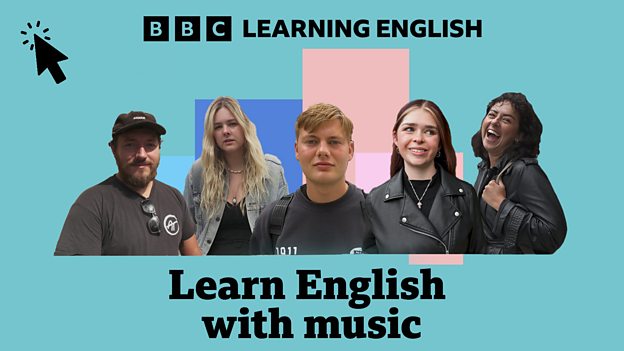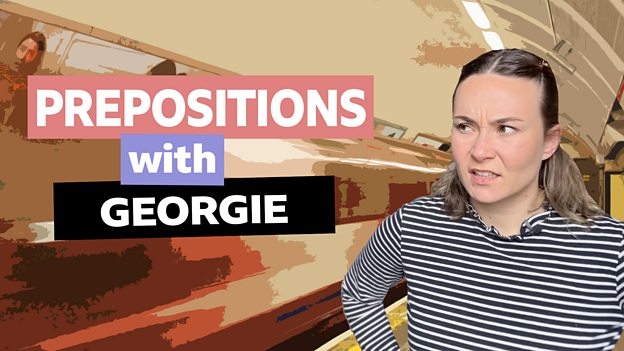6 Minute English
Intermediate level
Would you eat a Kalette?
Episode 230406 / 06 Apr 2023

- Can AI have a mind of its own?
- Climate change: Are there too many people?
- The hidden life of buffets
Introduction
Are you adventurous when it comes to food, or do you stick to pizza or ordinary types of salad such as tomatoes, lettuce and onion? Neil and Sam shake up the menu and talk about new vegetables created by farmers in the UK, and teach you new vocabulary along the way.
This week's question
One of the first hybrids on sale in the UK was named, Cotton Candy, because of its sweet, caramel flavour. But what is Cotton Candy?
a) a cherry
b) a strawberry
c) a grape
Listen to the programme to find out the answer.
Vocabulary
hybrid
plant (or animal) which has been bred by mixing two different parent plants (or animals)
blue-sky thinking
using your imagination to try and think up completely new and original ideas
wacky
unusual in a funny or surprising way
the mixing pot
place where different ideas or ingredients are mixed to create something new
texture
the way something feels when you touch it
novelty
the quality of being new or unusual
TRANSCRIPT
Note: This is not a word-for-word transcript.
Neil
Hello. This is 6 Minute English from BBC Learning English. I’m Neil.
Sam
And I’m Sam.
Neil
‘Kalettes’, ‘CauliShoots’, and ‘Tenderstems’… Can you guess what they are, Sam?
Sam
Well, they sound like the names of pop groups to me!
Neil
Yes, good guess, but in fact the truth is even stranger – they’re varieties of vegetable being grown in the UK by a new generation of fruit and veg growers. Forget traditional carrots, leeks and potatoes - vegetables today are getting a modern makeover thanks to breeding methods which mix two different plants to produce something completely new, known as a hybrid.
Sam
The hybrid, Kalette, for example is a mix between kale and a Brussel sprout.
Neil
Tenderstems are a mix of traditional broccoli with a type of Chinese kale.
Sam
And CauliShoots are small green stems with mini cauliflower heads shooting out the side. These exciting new varieties, which look very different from traditional vegetables, are increasingly popular on farms, in shops and in restaurants across the UK. In this programme, we’ll hear all about these new vegetables and the people who grow, cook and eat them. And, as usual, we’ll be learning some new vocabulary as well.
Neil
Sounds good, Sam! But first I have a question for you. One of the first hybrids on sale in the UK was named, Cotton Candy, because of its sweet, caramel flavour. But is Cotton Candy:
a) a cherry?
b) a strawberry? or
c) a grape?
Sam
Well, if it’s sweet, I’ll guess it’s a strawberry.
Neil
OK, well, we’ll reveal the answer later in the programme. The Kalettes which Sam mentioned earlier, were introduced in the British market in 2010 under the name, ‘Flower Sprouts’. They were advertised as a healthy vegetable that could be cooked or eaten raw and became extremely popular.
Neil
The inventor of the Kalette is Jamie Claxton, one of the UK’s top seed producers and head of plant breeding firm, Tozer Seeds. Here’s Jamie chatting with, Leyla Kazim, presenter of BBC Radio 4’s, The Food Programme.
Leyla Kazim
And so how did the idea of the Kalette even come about in the first place?
Jamie Claxton
We do quite a lot of blue-sky breeding where we just try wacky stuff and see what happens.
Leyla Kazim
Were you looking at sprout and a kale going, ‘I could do something exciting with this’.
Jamie Claxton
We were looking at the whole of the brassica family, those are all brassica oleracea - Brussels sprouts, kales, cauliflowers, and just thinking how… Obviously we knew they would cross pollinate easily and produce unusual veg, and we were just kind of thinking we need to create something that's more modern, you know, Brussels sprouts and kales are very traditional… Throw a few things in together in a mixing pot thing and see what comes out.
Neil
Jamie says Kalettes were the result of blue-sky breeding. This phrase comes from another expression, blue-sky thinking, which means using your imagination to try to come up with completely new and original ideas.
Sam
Some of Jamie’s plants were wacky - unusual in a funny or surprising way, but this was all part of the fun of breeding and growing new vegetables. Jamie threw his ideas into the mixing pot – a place where different ideas mingle together to create something new.
Neil
Hybrid vegetables add exciting new colours and tastes to traditional veg, such as the deep purple leaves of rainbow kale, or the sweet nutty flavour of a CauliShoot. As a result, they have become fashionable with many British chefs, including Jack Stein, son of TV chef, Rick, who runs a restaurant in the seaside town of Padstow in Cornwall.
Sam
Here’s presenter of BBC Radio 4’s, The Food Programme, Leyla Kazim, again, talking to Jack about what makes a great new vegetable.
Leyla Kazim
When you’re looking at new varieties of veg, are there any particular traits that you're looking for that will help in the kitchen?
Jack Stein
I mean, obviously it's gonna be down to taste really, and it's gonna be down to what it looks like on the plates. The colour, the texture, the taste, all these things are really important, but I think novelty and things like the Kalettes were great. I mean, they were originally called ‘Flower Sprouts’.
Neil
Jack names two features of great hybrid veg. First, there’s the texture – the way something feels when you touch it…
Sam
And second, novelty – the fact that something is new and unusual. Added to the surprising way many new varieties look, and of course their great taste, modern vegetables have provided a welcome new addition to traditional British cooking.
Neil
And don’t forget the unusual names too, Sam, like the ‘Cotton Candy’ fruit I asked you about in my question.
Sam
Yes, I guessed Cotton Candies were a new variety of strawberry. Was I right?
Neil
You were wrong I’m afraid, Sam. In fact, Cotton Candy is a variety of grape, so called because they’re very sweet and taste like you’ve been to the fairground. OK, let’s recap the vocabulary we’ve learned from this programme about new vegetable hybrids – plants which have been grown by mixing two different plants together.
Sam
Blue-sky thinking involves using your imagination to try and think up original ideas.
Neil
Something which is unusual in a funny or surprising way could be described as wacky.
Sam
The mixing pot is a place where different ideas or ingredients get mixed to create something new.
Neil
Texture means the way something feels when you touch it.
Sam
And finally, novelty is the quality of being new or unusual. If you’ve enjoyed this programme, why not take the taste test by cooking some hybrid vegetables yourself.
Neil
And remember to join us again soon for more trending topics and useful vocabulary here at 6 Minute English. Goodbye for now!
Sam
Bye bye!
Latest 6 Minute English
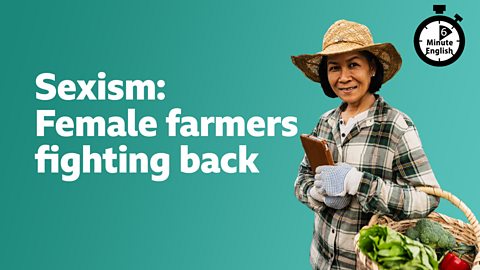
Sexism: Female farmers fighting back
Episode 231228 / 28 Dec 2023
How can female farmers beat rural sexism?


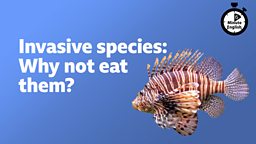
Invasive species: Why don't we eat them?
Episode 231207 / 07 Dec 2023
Could we eat invasive species?

What and where is Little Italy?
Episode 231130 / 30 Nov 2023
Mozzarella, ricotta, cannolis and focaccia... Where are we? Little Italy of course!

Social media and teenage health
Episode 231123 / 23 Nov 2023
What are the health risks of social media for teenagers?

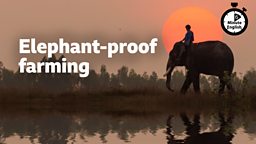



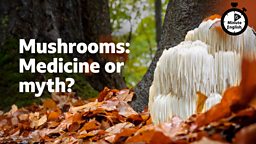


Sounds that make you want to scream
Episode 230928 / 28 Sep 2023
Are there any sounds you find upsetting?




The stories behind our names
Episode 230831 / 31 Aug 2023
What do our names reveal about our culture and family history?


Are you unhappy at work?
Episode 230817 / 17 Aug 2023
Does work leave you feeling bored and exhausted?



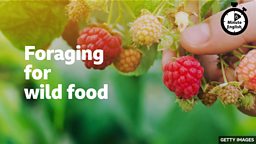
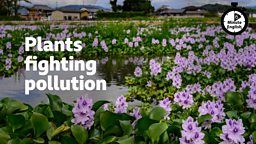


Is it wrong to eat plants?
Episode 230629 / 29 Jun 2023
Should we treat plants with the same consideration we treat animals with?



The art of subtitling
Episode 230608 / 08 Jun 2023
Hear how subtitles can help bring TV and movies to life

Ecotourism: good or bad?
Episode 230601 / 01 Jun 2023
We discuss the growing popularity of ecotourism.

Can climate change cause more disease?
Episode 230525 / 25 May 2023
With warming temperatures, mosquitos are now spreading to new areas, including Europe.



Ice and the origins of life on Earth
Episode 230504 / 04 May 2023
We talk about an essential element for life to thrive.

Women in politics
Episode 230427 / 12 Apr 2023
We discuss some of the reasons why women make up only 26% of the world's politicians.

What's the point of museums?
Episode 230420 / 20 Apr 2023
We discuss the role of museums in the 21st century and the items taken from different countries.

How culture affects sadness
Episode 230413 / 11 Apr 2023
What ways do you think culture can influence sadness?

Would you eat a Kalette?
Episode 230406 / 06 Apr 2023
Hear about a new kind of vegetable making an entrance in British kitchens

Do you get jealous easily?
Episode 230330 / 06 Mar 2023
Let's talk about the ugly green-eyed monster


Food and mood
Episode 230316 / 16 Mar 2023
We look at the link between what you eat and how you feel.

How to talk to a climate denier
Episode 230309 / 09 Mar 2023
The dos and don'ts of trying to discuss science with someone who doesn't believe in it

Losing your mother tongue
Episode 230302 / 02 Mar 2023
Hear the story of a woman who replaced her native Czech for English.
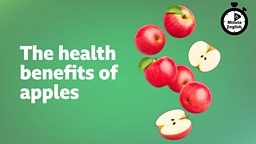
The health benefits of apples
Episode 230223 / 23 Feb 2023
Could 'an apple a day keep the doctor away'?


Doomscrolling: Why do we do it?
Episode 230209 / 27 Jan 2023
What is doomscrolling and why are we attracted to bad news? Listen to find out!

Exercise for the lazy
Episode 230202 / 22 Jan 2023
What's the least amount of exercise you should do to stay healthy?

Can AI have a mind of its own?
Episode 230126 / 26 Jan 2023
Hear about the software engineer who became 'friends' with his computer

Climate change: Are there too many people?
Episode 230119 / 13 Jan 2023
Does the size of your carbon footprint depend on where in the world you were born? Listen to find out!
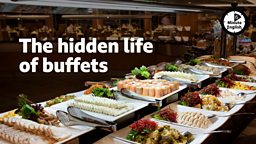
The hidden life of buffets
Episode 230112 / 12 Jan 2023
Neil and Sam discuss buffet meals and the history behind them.

Songwriting
Episode 230105 / 05 Jan 2023
Writing a memorable song isn't easy. So is there an art to good songwriting?


